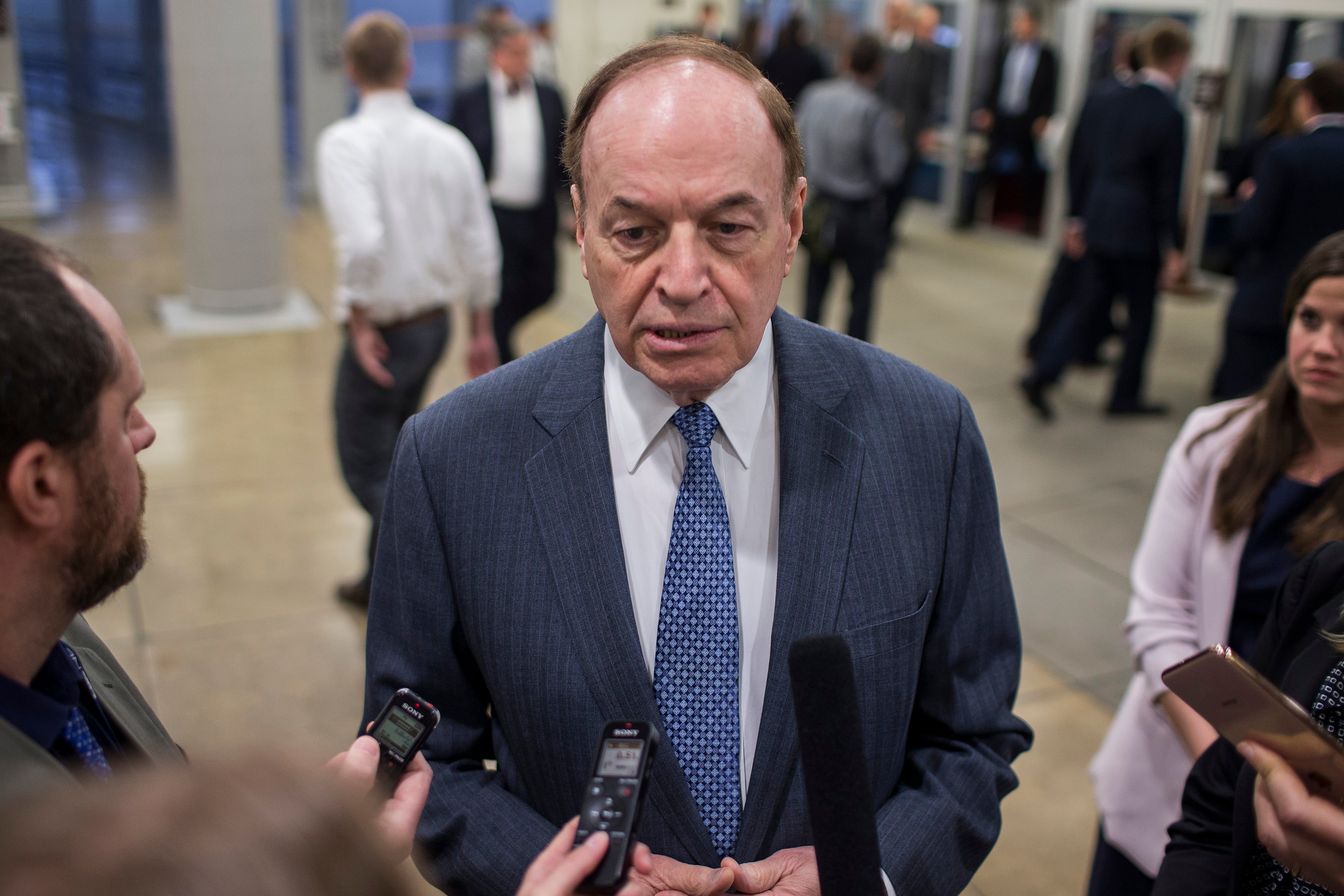WASHINGTON — House Democrats on Friday advanced a contentious $733 billion defense policy bill packed with progressive priorities that sets up a showdown with Senate Republicans and the White House in coming months over the future direction of the Defense Department.
Among the key points of conflict behind the 220-197 vote: limits on the president’s power to wage war on Iran; new rules allowing transgender recruits to join the ranks; restrictions on the U.S. nuclear arsenal; and overall spending levels for military missions.
Amid heated debate, Republicans accused Democrats of passing an unrealistic “messaging bill” in contrast to the typically nonpartisan tone of the expansive defense policy legislation. None voted for the final bill.
House Minority Leader Kevin McCarthy, R-Calif., said that even though the legislation included non-controversial priorities like the annual military pay raise and improvements to modernization programs, his political rivals had made the measure too unpalatable to support.
RELATED

“The (authorization bill) was a test for this new majority,” McCarthy said. “It was a test of whether they could put their radicalism aside and work across the aisle to do what was right for the country. The Democrats … failed that test.”
But House Armed Services Committee Chairman Adam Smith, D-Wash., blamed Republicans for pushing the military policy bill into partisan rancor, saying they seemed set on voting against any measure his party put forward.
“We have put together a good bill,” he said just before Friday’s vote. “The reason Republicans oppose it is for purely partisan reasons. They want to be able to give speeches like the one the minority leader did, saying Democrats don’t care about national security.
“We care about national security. In fact, I’ll tell you our bill isn’t just good, it’s better than the ones that the Republican Party has put together, because we believe the Pentagon should be accountable.”
In coming weeks, the House and Senate will work to reconcile their competing versions in hopes of finding a compromise later this year and continuing the legislation’s 58-year streak of successful passage into law.
** Funding fight
The most divisive issue surrounding the fiscal 2020 defense authorization bill is its total spending target. President Donald Trump has issued a veto threat of the House draft, in large part because Democrats proposed $17 billion less than his spending request for next fiscal year.
Democrats noted that military leaders publicly embraced the idea of a $733 billion defense budget last year, before they convinced Trump to request the higher number. Smith dismissed GOP maximalist arguments as “pure partisanship.”
“If we had said $750 billion they'd be on the floor saying, not enough, it’s got to be $775 billion,” Smith said. “With Democrats working on this bill, this bill is better for national security because we don't believe in sending a blank check to the Pentagon. Sending a blank check to the Pentagon is not in the best interests of our troops or our national security.”
But House Armed Services Committee ranking member Mac Thornberry, R-Texas, said the lower defense funding target “simply doesn’t provide our military men and women with the resources needed to adequately protect the homeland.” Democrats defeated a last-minute procedural maneuver from Thornberry to boost spending up to nearly $740 billion, including a 4 percent pay raise and additions to training, readiness and personnel accounts.
Both sides expect the spending gap to be negotiated as part of a broader federal budget deal later this year, one that must be reached by Oct. 1 to avoid a partial government shutdown. That looming budget deadline will dictate much of the progress on authorization bill negotiations, and when the final measure will be completed.
RELATED

** Progressive priorities
In the lead-up to Friday’s House vote, Democratic lawmakers added provisions allowing transgender recruits to join the military (10 Republicans went along with the idea), overturning rules barring medical malpractice lawsuits against the military (Republicans have voiced concerns about the potential costs), and eliminating the so-called “widow’s tax,” which strips thousands of dollars in benefits from surviving spouses of some deceased troops (also a cost-concern issue).
Democrats defeated a Republican amendment, mostly along party lines, aimed at reversing the bill’s ban on deployment of a new submarine launched low-yield nuclear warhead. Republicans charged the provision amounted to “unilateral nuclear disarmament,” but Smith countered the bill overall would increase funding for the arsenal by 4 percent.
Rules allowing the transfer of Guantanamo detainees to the American mainland, restrictions on armed forces’ response to Iran and participation in Saudi-led operations in Yemen, and expansion of contraceptive access in the military also drew more Republican opposition.
Democrats passed another amendment to bar the use of Defense Department funds to house foreign nationals held by U.S. Immigration and Customs Enforcement. House Homeland Security Committee Chairman Bennie Thompson, D-Miss., said the goal was to stop military money “from being used as President Trump’s personal piggy bank to circumvent the will of Congress.”
Those provisions also drew the ire of White House officials, who have sparred with Democratic leaders for the past year over funding for controversial border security projects in southern states.
Other progressive-backed amendments to severely restrict military personnel and funding for immigration operations along the border failed to gain enough support to be added to the defense policy measure. However, Democratic leaders did include language in the bill blocking Trump’s Pentagon from shifting billions in defense funds to wall construction projects, as the administration attempted earlier this year.
** Path ahead
Negotiating which of those provisions survive will be left to conference committee members (and congressional staff) to work out in coming weeks. Last year’s defense authorization bill was finalized before the congressional summer recess, but this year’s work is expected to drag late into the fall.
On Thursday, Senate Armed Services Committee Chairman Jim Inhofe, R-Okla., said he believes many of those divisive provisions will have to come out in conference so that the bill can pass in the GOP-controlled Senate. His chamber passed its $750 billion draft last month with bipartisan support, 86-8.
In contrast with the heated rhetoric on the House floor Friday, Inhofe said Thursday he had a calm meeting with Smith earlier in the week to begin sorting out those differences.
“I had a nice visit, a long visit, with Smith, in my office yesterday, talking about the fact that we both have a commitment. We’ve got to get a bill,” Inhofe said. “The main thing I wanted was to get something out of the House, into conference.”
Leo covers Congress, Veterans Affairs and the White House for Military Times. He has covered Washington, D.C. since 2004, focusing on military personnel and veterans policies. His work has earned numerous honors, including a 2009 Polk award, a 2010 National Headliner Award, the IAVA Leadership in Journalism award and the VFW News Media award.
Joe Gould was the senior Pentagon reporter for Defense News, covering the intersection of national security policy, politics and the defense industry. He had previously served as Congress reporter.





